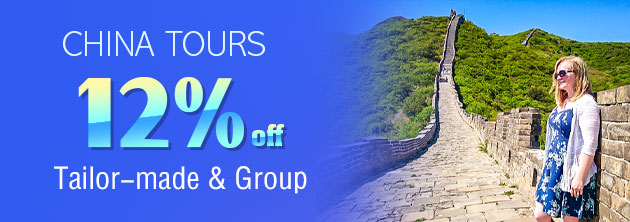Emperor Wu
The fifth Emperor of the Western Han Dynasty (206 BC - 24 AD), Emperor Wu named Liu Che was crowned as prince at the age of seven, and succeeded to the throne when he was 16 years old. In 87 BC, after ruling China for 54 yeas, he died of illness on the throne at 70 years old. He was a great emperor with bold strategies that demonstrated innovation and exploitation. It was through his wise reign that China began to be known all over the world as a strong, rich and highly civilized country.
Upon ascending the throne, he continued to carry out his rehabilitation policy on one hand, and a series of extensive reforms in politics, internal economics, and measures to deal with foreign affairs on the other. Through his efforts, China reached unprecedented prosperity and became the strongest country in the world.
In politics, he practiced 'Tui En Ling' to weaken the power of the feudal lords and to strengthen state power. Meanwhile, he brought in the position of Provincial Governor (Cishi) to supervise local officials. What's more, he had even ordered government officials to recommend wise and learned people for his use. Over 100 competent people from all classes of the country were selected and sent to discuss with him about how to govern the country well. Dong Zhongshu, a Confucian scholar of the Han Dynasty, gained the recognition of Emperor Wu for his talents, because his personal ideas corresponded with Emperor Wu's ideal of unifying China. Later, Wei Wan, the prime minister, suggested that the talented people recommended by the officials were from different schools of literature, and they would cause disorder in the court. After careful thinking, Emperor Wu accepted Wei Wan's advice. He retained Dong Zhongshu, Sun Hong, Zhuang Zhu, and some other Confucian scholars. Scholars from the other schools were sent back. Thereafter, Confucianism was promoted to being the state ideology and orthodoxy.
In economy, he recognized that social economy paved the way for realizing his political ambition, so he determined that development of social production must be enforced. He took measures to stabilize the small peasant economy on one hand, and on the other, he restricted landowners' misconducts and their annexations of the land. Meanwhile, he paid special attention to constructing and repairing water conservancy projects. He ordered the water of the Weihe River and Fenhe River diverted into the Yellow River. Twenty-nine years after ascending the throne, he carried out new financial and economic policies. He organized the monetary system, nationalized the power of coining, iron casting and salt making, abolished all inferior coins, made Wuzhu Coin as the official money, and had the large-scale handicraft workshops and commercial departments controlled by the central government. Thus, the centralization of state power was strengthened, and the strength of state economic power was unprecedented.
In foreign affairs, to improve life on the north borders, Emperor Wu decided to quash the Huns' threat. First, he ended the 'Peace-making Marriage' policy in effect since the early times of the Han Dynasty (206 BC - 220 AD). Then he assigned General Wei Qing and Huo Qubing to attack the Huns, and launched three large-scale wars against the Huns in 127 BC, 121 BC and 119 BC. Those wars weakened the Huns badly and ended the long-term Hun invasions finally. Later, he conquered the Nanyue State and North Korea, set up seven counties in southwest China, and made present Guangdong and Guangxi Provinces revert to the territory of China again. He also sent Zhang Qian to the Western Regions (the middle and west Asia and the Indian peninsula areas today) as an envoy twice, and opened up the world-famous Silk-Road.
However, Emperor Wu always craved greatness and success to match his reign title – martial emperor. In his rule, he launched wars year after year to pacify the Huns, which emptied the nation's coffers and made life miserable for the common people. In his late years, he became a lavish spender and recklessly held worships to pray for immortality. In order to satisfy his passion for entertainment, he increased tax on the common people, which made many peasants homeless. Later, peasant uprisings broke out in many places, which made Emperor Wu recognize his fault. He even wrote an article addressed to the public to acknowledge his mistakes.
In 88 BC, Emperor Wu entrusted his youngest son - Liu Foling to Minister Huo Guang. At the same time, he put Lady Gouyi, mother of Liu Foling, to death to prevent her from assuming Empress Lv's role. In 87 BC, Emperor Wu died and was buried in Mao Tomb. When he died, his son Liu Foling took over.

